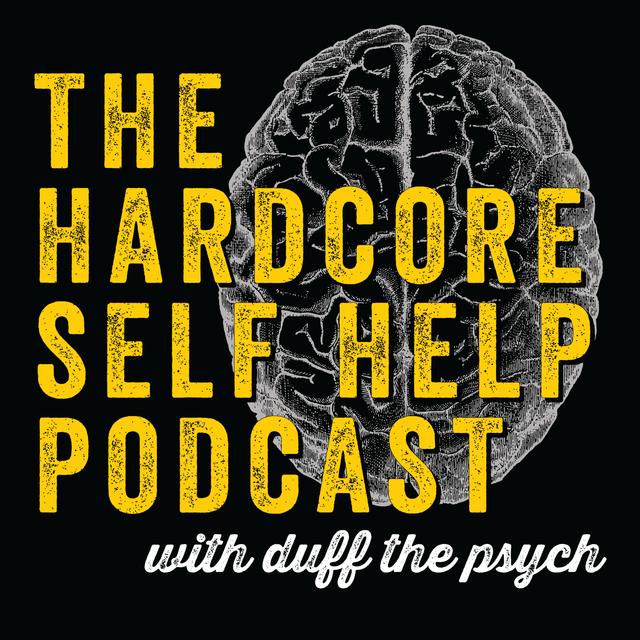
431: Pathological Demand Avoidance & Persistent Low-Grade Depression
Episode description
Episode 431: Pathological Demand Avoidance in Coaching & Persistent Depression
Welcome to another episode of the Hardcore Self Help Podcast with Dr. Robert Duff! In this Q&A episode, Dr. Duff tackles two insightful listener questions on very different but equally important mental health topics.
Question 1: Pathological Demand Avoidance (PDA) in CoachingA listener working as an individual sports coach seeks advice on how to best support a talented but highly resistant student who displays signs of Pathological Demand Avoidance (PDA). Dr. Duff dives into:
-
What PDA is and how it manifests in individuals, particularly in relation to autism, ADHD, and other neurodivergent conditions.
-
The importance of reframing PDA as a high drive for autonomy rather than defiance.
-
Practical coaching strategies to work around demand avoidance, including collaborative goal setting, offering choices, and making training sessions more engaging and playful.
-
The significance of open-ended questions and genuine curiosity in understanding the root of a student’s resistance.
A listener describes their struggle with long-term, low-grade depression despite attempts with medication and therapy. Dr. Duff provides insights into:
-
Understanding Persistent Depressive Disorder (formerly known as dysthymia) and how it differs from episodic major depression.
-
Behavioral activation as a treatment approach, including strategies for identifying and engaging in potentially enjoyable activities despite a lack of motivation or pleasure.
-
The five-minute rule to help overcome resistance to activities.
-
Medication considerations, including alternatives like Wellbutrin (bupropion) and the combination drug Auvelity, which may have fewer side effects.
-
Non-medication treatments such as Transcranial Magnetic Stimulation (TMS) and ketamine therapy.
-
The importance of evaluating life circumstances to identify external contributors to chronic depression, such as hidden identity struggles or unsatisfying relationships.
[00:00] Intro and updates on Dr. Duff’s upcoming bipolar book
[03:00] Question 1: Pathological Demand Avoidance (PDA) in coaching
[12:00] Strategies for engaging students with PDA
[14:00] Question 2: Chronic low-grade depression and treatment options
[19:00] Behavioral activation and the five-minute rule
[23:00] Medication alternatives and non-pharmacological treatments
[27:00] Life circumstances and their role in persistent depression
[28:00] Outro and listener support requests
-
Dr. Duff’s website: http://duffthepsych.com
-
Email your questions: [email protected]
-
Follow Dr. Duff on Instagram: https://instagram.com/duffthepsych
-
Dr. Duff’s book “Hardcore Self Help: F**k Depression”: https://www.amazon.com/Hardcore-Self-Help-Depression/dp/B01J4H5A40
-
Previous episodes on TMS and ketamine treatments: http://duffthepsych.com/podcast
-
More on ketamine treatments: https://duffthepsych.com/ect-and-ketamine/
Thank you for tuning in! If you found this episode helpful, please consider sharing it with a friend or leaving a review. Your support helps the podcast grow and reach more people who need it. See you next time!
